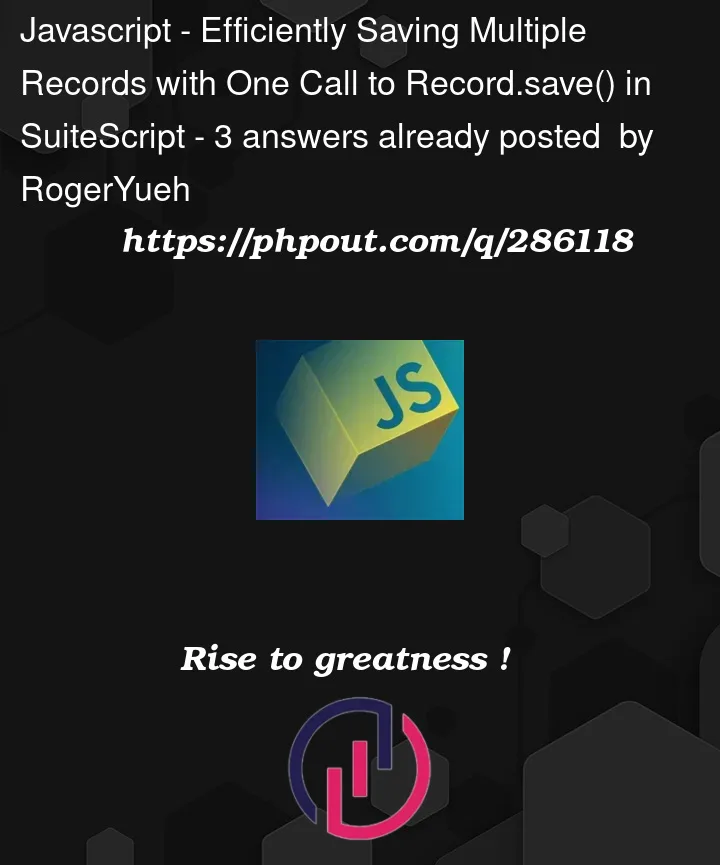I’m working with SuiteScript and have encountered a scenario where I need to record 20 sales order records. My understanding is that each call to the Record.save() method consumes units, similar to points. This leads me to two questions:
- To save 20 sales order records, do I need to call
Record.save()20 times, resulting in a significant consumption of units? - Is there a more efficient way to save these 20 records with a single call to
Record.save(), which would reduce the unit cost?
I’m looking for a solution that allows me to save multiple records efficiently without excessively depleting my units. Any insights or alternative methods for handling this in SuiteScript would be greatly appreciated. Thank you!




3
Answers
There is no other way.
Saving a record consumes units because you are making a change in the database.
Same as loading a record.
This is also the reason why search.lookupField and record.submit field as they don’t load or save a full record, consume fewer units.
If you need to create a sales order, you will use record.create with record.save(). If you need to update a field, you can use the record.submit field.
Remark: record.submitField doesn’t always work.
Don’t think of the NetSuite script governance units as something you need to be scared of depleting; think of them as a sanity check against doing something that will cause problems for your users or system. In other words, the governance system is set up to protect you from yourself.
For example, if your question relates to a User Event or Client script, saving 20 sales orders will cause a long delay whenever it’s fired, and that would not even (by itself) cause a governance exceeded error. (
Record.save()uses 20 units per invocation, so 400 total. Including the units from loading or creating wopuld have you up to 600 – still well below the 1000 unit total allowed.)To answer your question, you would need to call
Record.save()once for each record, as it is a method on theRecordinstance object. There is no SuiteScript API, for example, which accepts an array ofRecordobjects and saves them all.There are several options for improving performance, depending on your specific use case:
record.submitFields(). This will be more performant and use half the governance units, compared with loading and saving.Record.save.promise()to enable your flow to continue while the records save asynchronously. This would still use the same amount of governance units, but may significantly improve user experience.N/taskmodule. The record or file to be processed by the scheduled script can be passed as a script parameter or discovered using a predefined flag (field) on the custom record, or retrieved from a specified folder if using a file.20 saleorder = 200 units in the scenario where you call .save() in each of them.
An alternative is import a CSV via suitescript and call the csv import and create many saleorder as you want
Import CSV to file cabinet= 0 Units
Import Taks CSV Import =100 Units no matther how many saleorder you create.
The script will run fast and no need to wait to suitescript finish to save the all records. But you dont need to worry about the units usage, I´ll more worried if you have beforesubmit and aftersubmit scripts in saleOrder transaction and those add seconds before the document is saved that will cause you problems because you will get request timeout errors and thats a headhache